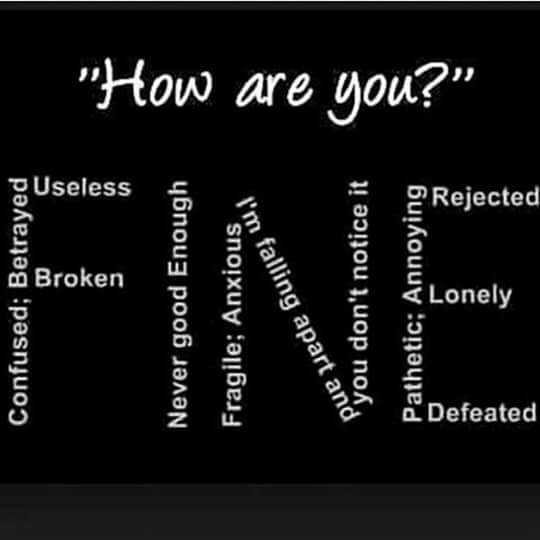
Many of us are asked the question “How are You?” multiple times a day. And what’s our response? “I’m good” or “I’m fine.” Hmm…So, how does this relate to emotional intelligence? Well let me tell you.
The Sneak Peak
Think of some of the instances when you were asked this question, and you gave one of these answers. Now connect to what you were really feeling in that instance. Were you really feeling good or fine?
Some of us may genuinely be feeling good at that point of time. But tell me, is it really possible that we are always feeling good when someone asks this question? Because that’s how we almost always respond to it. Or is there something else lurking behind, that we are either unaware off or really don’t want to be aware off!
Well the truth for many of us is, that we may not actually be feeling so great during many of such instances. And we use the “I’m fine” statement as an escape route. If you look a little below the surface, you may find various thoughts behind the statement like:
• “I know I’m not feeling good, but what’s the point sharing it. You won’t want to hear my sad story anyway!” Or
• “I’m not comfortable sharing my emotions with you, you might judge me!” Or
• “If I avoid saying the negative, I might feel a little more positive.” Or
• “Sharing might make me remember my story and I’ll become sad again. So, its best I avoid that.” Or
• “Emotions should not be discussed in the office space. It’s better to mask my emotions here and put on a happy face.” Or
• “You’ll give me some advice if I tell you, and I’m not open to that right now!” Or
• “You already know. What’s the point of repeating the same old story!” Or
• “I don’t want to burden you with my problems, you have enough of your own!”
• And many more…
And what does all of this mean?
A simple statement that we commonly use without giving much thought to, actually has strong undercurrents. And if used appropriately, it can help us get more emotionally intelligent.
How? By acting as an anchor for awareness.
For example, every time I am about to say “I’m fine” to someone, I now pause. I ask myself whether I am really feeling fine in that moment. I also ask myself whether I really want to share why I’m not fine if the opposite person asks. All this of course, happens in a split second.
And if I am comfortable sharing my discomfort, I tell them I’m okay. Some people just overlook the statement. Others, who are more emotionally aware or who genuinely care, ask me why ‘just’ okay!
How does this improve Emotional Intelligence?
By firstly increasing awareness, the first competency of emotional intelligence. It helps you get in touch with your emotions and feelings rather than automatically pushing them under the carpet!
Once you get aware, you can move to the second competency, regulation. That’s when you process your emotions by accepting them and integrating them within you. This helps you manage the emotion and build resilience.
And once this is done; can you really listen to the opposite person, empathise with how they are feeling, authentically share your stories and create a great bond.
To know more about how you can do this, attend our emotional intelligence trainings. And give yourself the opportunity to have a healthy emotional world!
